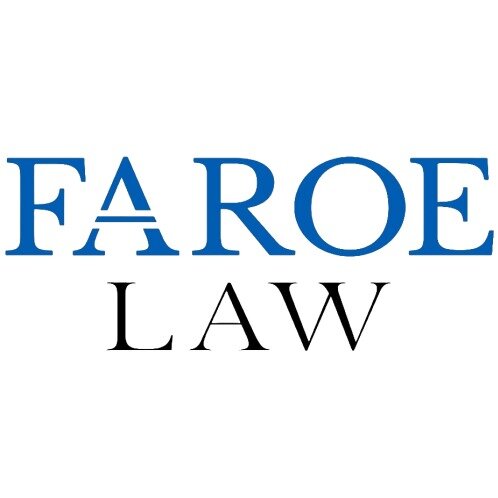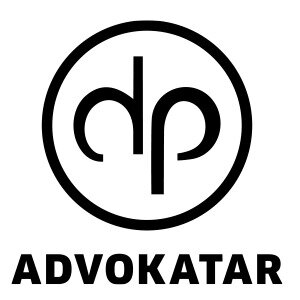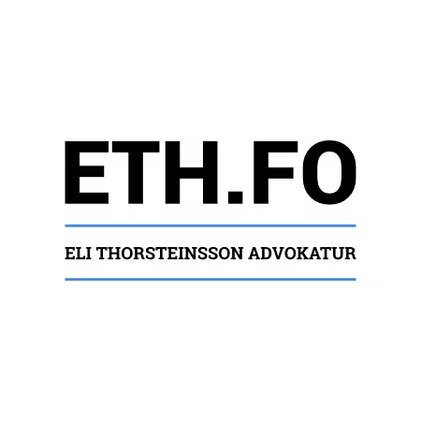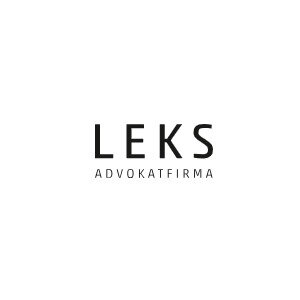Best Structured Finance Lawyers in Faroe Islands
Share your needs with us, get contacted by law firms.
Free. Takes 2 min.
Or refine your search by selecting a city:
List of the best lawyers in Faroe Islands
About Structured Finance Law in Faroe Islands
Structured finance refers to highly complex financial instruments that organizations use to manage risk and create new sources of capital. In the Faroe Islands, structured finance is a niche but growing field that supports businesses, financial institutions, and investors involved in complex transactions, such as securitization, collateralized loans, and project financing. The Faroese legal framework for structured finance has strong ties to both Danish and EU law, offering both opportunities and unique challenges for parties seeking to navigate this area.
Why You May Need a Lawyer
Securing professional legal advice is essential when dealing with structured finance in the Faroe Islands. Here are some common situations where a lawyer's guidance is invaluable:
- Structuring and negotiating complex financial transactions, including securitizations and syndicated loans
- Ensuring regulatory compliance with local, Danish, and EU laws
- Drafting, reviewing, and enforcing contracts and security documents
- Advising on tax implications and efficient deal structuring
- Resolving disputes or defaults involving structured finance products
- Cross-border deals involving Faroese counterparties or assets
- Dealing with insolvency or restructuring of structured finance deals
Local Laws Overview
Structured finance in the Faroe Islands operates within a legal system based on Danish law but with modifications unique to the Faroese jurisdiction. Key aspects include:
- The Faroe Islands maintain legislative autonomy in certain areas, while others are governed directly by Danish law and, by extension, relevant EU directives and regulations
- Financial activities are regulated by the Faroese Financial Supervisory Authority, which works closely with Danish regulators
- Contract law and property rights are foundational, with particular attention to the registration of collateral and enforcement mechanisms
- KYC and anti-money laundering regulations are strictly enforced, affecting both local and cross-border transactions
- Taxation of structured finance instruments may involve both Faroese and Danish tax rules, depending on the entities and assets involved
Frequently Asked Questions
What is structured finance, and is it common in the Faroe Islands?
Structured finance refers to sophisticated financing arrangements involving pooling of assets, securitization, and risk transfer. While not as widespread as in larger markets, structured finance is available in the Faroe Islands, often for significant corporate or infrastructure projects.
Which laws govern structured finance transactions in the Faroe Islands?
Most structured finance transactions follow Danish law, as adapted locally, and applicable EU regulations. Some aspects are subject to specific Faroese laws, especially in contract and real property matters.
Who regulates structured finance activities in the Faroe Islands?
The Faroese Financial Supervisory Authority oversees financial institutions and structured finance transactions, often in cooperation with Danish authorities.
Are international investors allowed to participate in structured finance deals?
Yes, international investors can participate in structured finance deals involving Faroese entities, but must comply with local regulations, KYC, and anti-money laundering requirements.
What is the process of registering collateral in the Faroe Islands?
Registering collateral typically involves submitting documents to the local register of deeds or a relevant financial registry to ensure the lender's security interest is publicly recorded and enforceable.
What tax considerations should I be aware of?
Taxation depends on the structure of the transaction and the entities involved. Both Faroese and Danish taxes may apply, and the transactions must be carefully structured to optimize tax efficiency.
Can structured finance arrangements be enforced in the event of default?
Yes, but enforcement follows Faroese legal procedures and court systems, which may differ from those in Denmark or other countries. Proper documentation and registration are crucial.
How does insolvency or restructuring affect structured finance transactions?
Insolvency or restructuring situations are handled under local insolvency laws, which prioritize secured creditors in specific ways. Legal advice is essential to protect your interests.
Are there any industry-specific restrictions?
Certain sectors, such as fisheries or energy, may have additional regulatory restrictions on finance and foreign investment due to their strategic significance within the Faroe Islands.
Do I need a local lawyer to handle structured finance deals?
While not always mandatory, engaging a Faroese lawyer ensures that your transactions comply with local laws, are properly documented, and your interests are protected in case of disputes.
Additional Resources
For additional information or support on structured finance law in the Faroe Islands, consider these resources:
- The Faroese Financial Supervisory Authority (Fíggjareftirlitið) - Regulates financial services in the Faroe Islands
- The Register of Deeds (Málsøkið hjá Landsstýrismanninum í Løgtingsmálum) - For registering collateral and property interests
- Faroese Ministry of Finance - Offers guidance on financial regulations and tax matters
- Local law firms specializing in corporate and financial law
- Business advisory services with experience in structured finance transactions
Next Steps
If you believe you require legal assistance in structured finance matters in the Faroe Islands, follow these steps:
- Clearly outline the details and objectives of your proposed transaction
- Consult with a local Faroese legal expert or law firm specializing in structured finance and commercial law
- Prepare all necessary documentation, including information about the parties, assets, and intended structure
- Ensure compliance with all regulatory and tax requirements before finalizing any agreements
- If disputes or enforcement issues arise, promptly seek experienced legal representation familiar with local courts and procedures
Taking these practical steps will help protect your interests and pave the way for a successful structured finance transaction in the Faroe Islands.
Lawzana helps you find the best lawyers and law firms in Faroe Islands through a curated and pre-screened list of qualified legal professionals. Our platform offers rankings and detailed profiles of attorneys and law firms, allowing you to compare based on practice areas, including Structured Finance, experience, and client feedback.
Each profile includes a description of the firm's areas of practice, client reviews, team members and partners, year of establishment, spoken languages, office locations, contact information, social media presence, and any published articles or resources. Most firms on our platform speak English and are experienced in both local and international legal matters.
Get a quote from top-rated law firms in Faroe Islands — quickly, securely, and without unnecessary hassle.
Disclaimer:
The information provided on this page is for general informational purposes only and does not constitute legal advice. While we strive to ensure the accuracy and relevance of the content, legal information may change over time, and interpretations of the law can vary. You should always consult with a qualified legal professional for advice specific to your situation.
We disclaim all liability for actions taken or not taken based on the content of this page. If you believe any information is incorrect or outdated, please contact us, and we will review and update it where appropriate.
Browse structured finance law firms by city in Faroe Islands
Refine your search by selecting a city.













